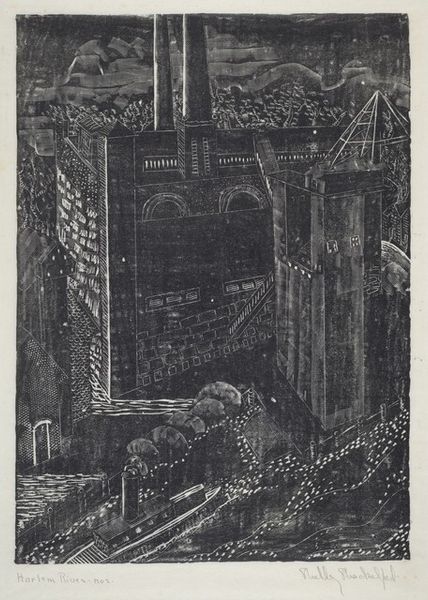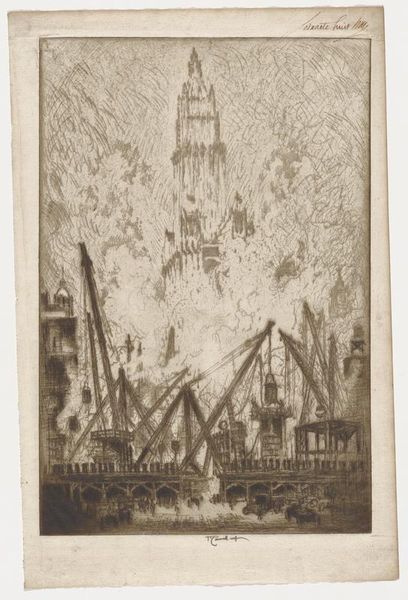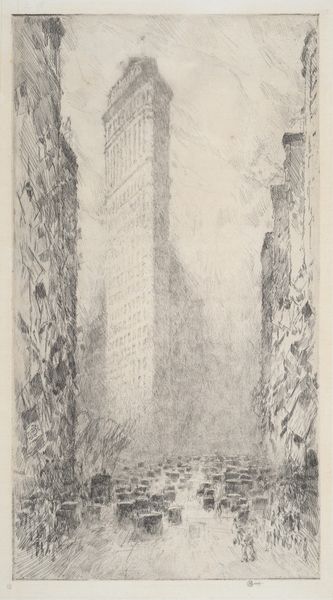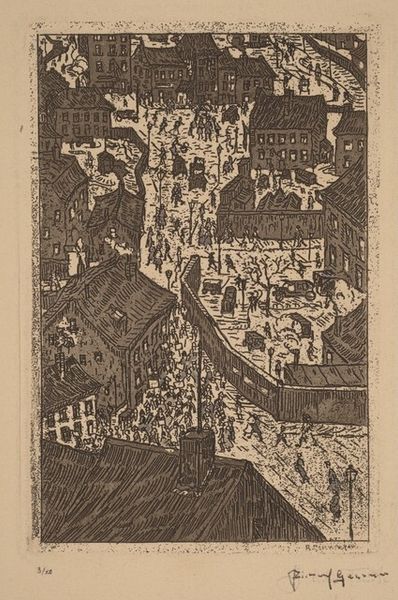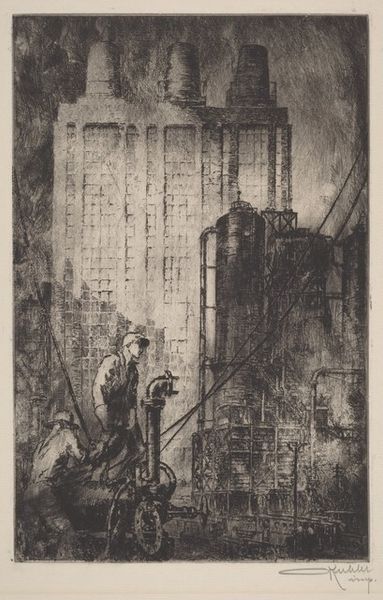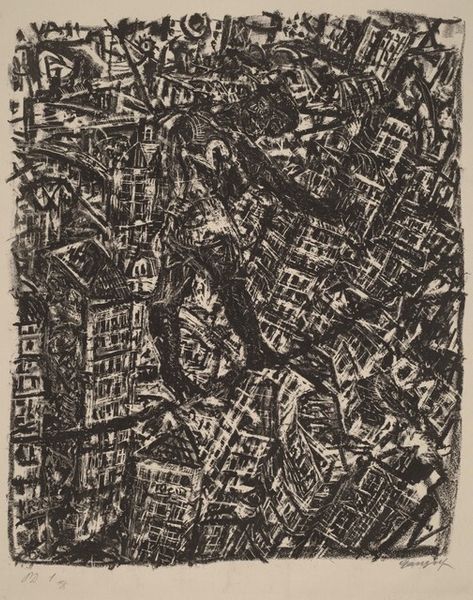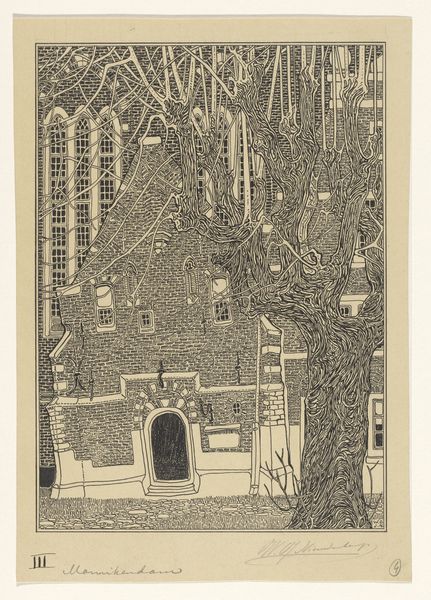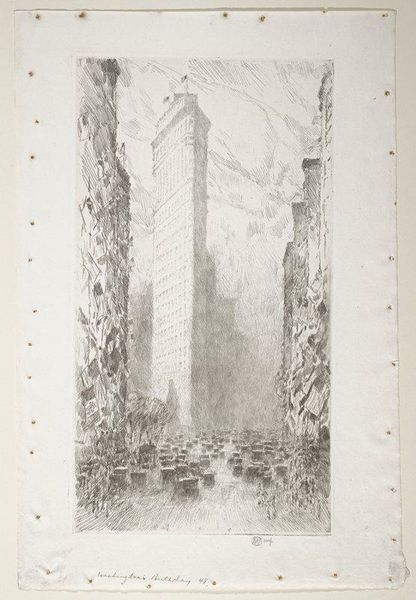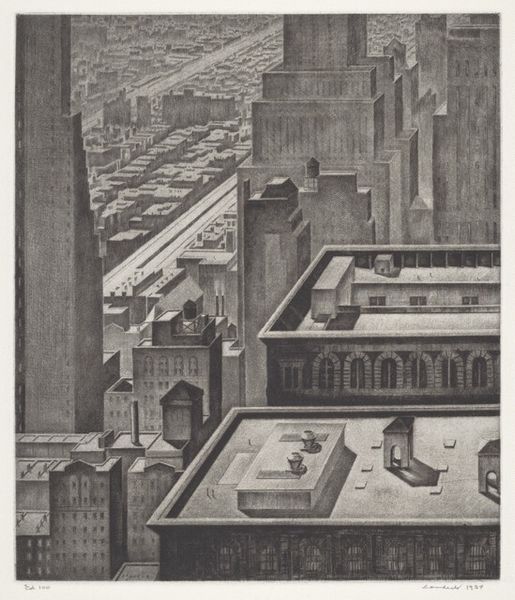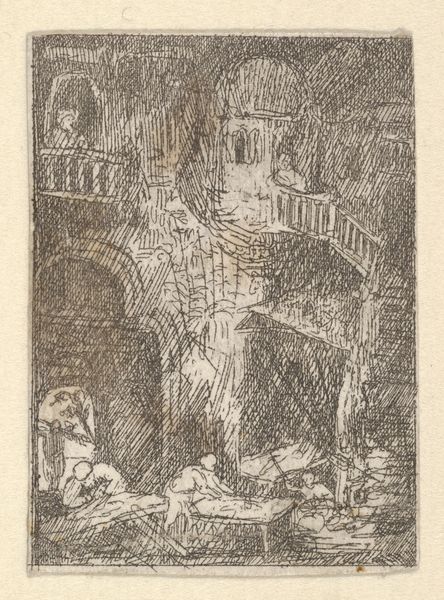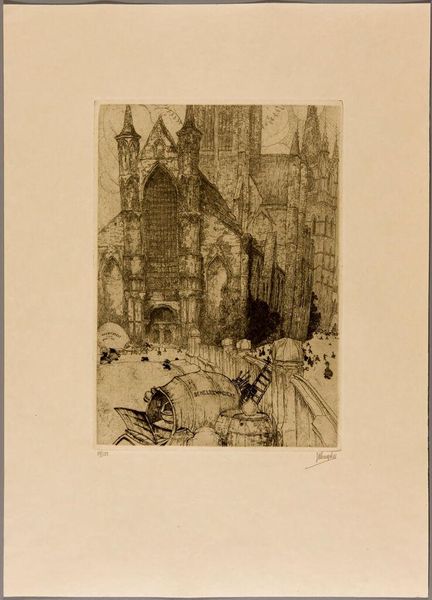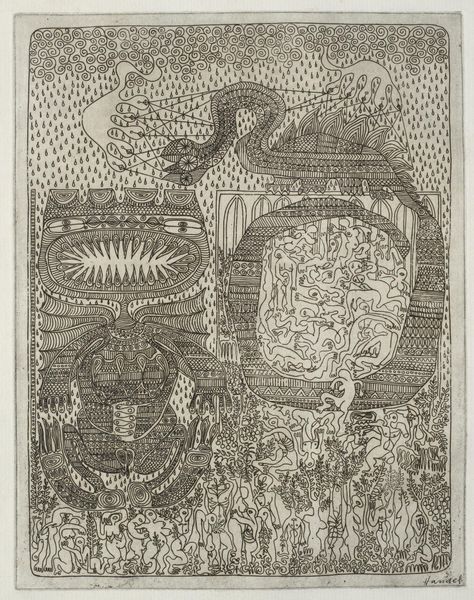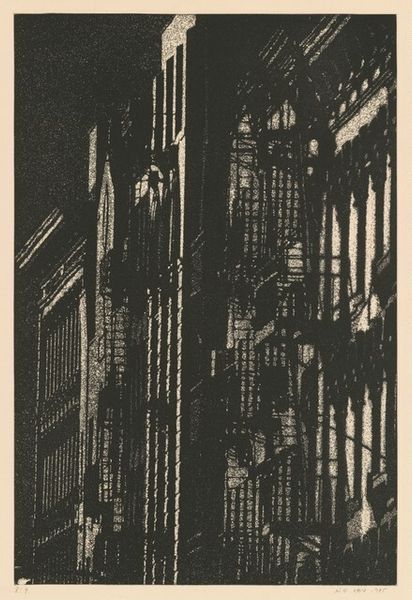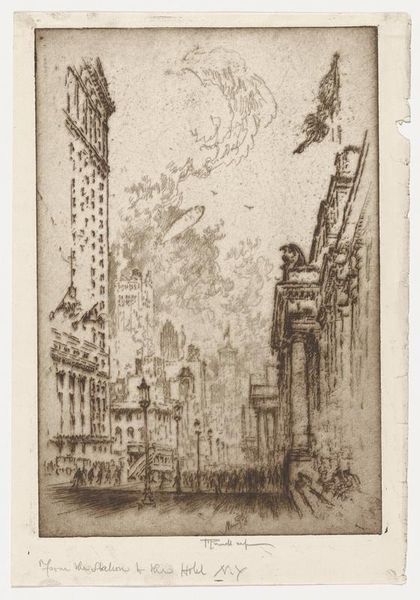
print, etching
#
baroque
#
dutch-golden-age
# print
#
etching
#
etching
#
cityscape
#
history-painting
Dimensions: height 80 mm, width 41 mm
Copyright: Rijks Museum: Open Domain
Simon Fokke created this print of the Reguliersklooster fire in Amsterdam in 1532, sometime in the 1700s. It's an etching, meaning Fokke would have used a sharp tool to draw into a waxy ground on a metal plate, which was then submerged in acid. The acid bites into the exposed lines, allowing them to hold ink, before being printed onto paper. The material qualities here are stark: the sharp, unforgiving lines incised into the metal that define the burning building, the terrified figures fleeing below, and the black ink contrasting with the white paper. The labor involved is clear, from the careful, precise lines of the architecture to the looser, frantic strokes depicting the fire. Prints like these democratized images, making them accessible beyond the elite. In this case, the print serves as a historical record, capturing a moment of destruction and upheaval, and reminding us that even in the age of mass production, the human touch remains essential to our understanding of the world.
Comments
No comments
Be the first to comment and join the conversation on the ultimate creative platform.
